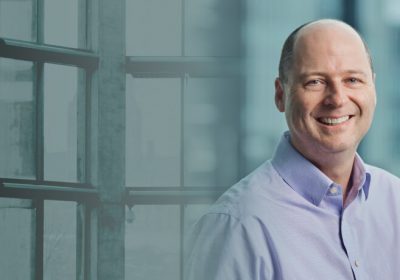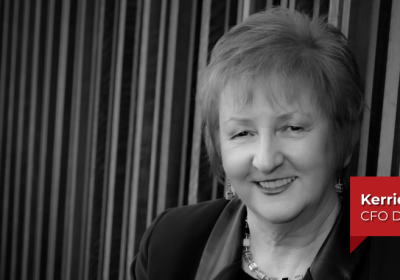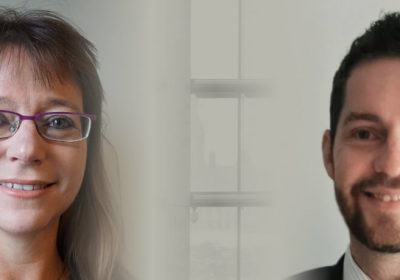
- Author: Richard McBride
- Posted: March 15, 2022
Meet the CFO: Jonathan Kenny | SiteMinder
With offices in Sydney, London, Berlin, Dallas, Galway, Bangkok and Manila, servicing over 33,000 clients throughout 150 countries; Australian born SiteMinder has grown to become a truly global leader.
Jonathan Kenny joined the company in November 2018 and CFO Magazine Editor, Richard McBride, took the opportunity to sit down with Jonathan to discuss his role as Chief Financial Officer and the continued growth and success of the business, even during times of adversity. Jonathan is a highly experienced finance leader with a demonstrated history of working both in pre-IPO and ASX-listed environments. Prior to SiteMinder, Jonathan was the Chief Financial Officer at 3P Learning, Bravura Solutions and Chief Operating Officer of Corelogic Australia.
RM – Jonathan, thank you for your time – The growth of SiteMinder has been nothing short of phenomenal – From two friends in 2006 and an angel investment of $250,000 to in early 2020 breaking through the elusive billion-dollar valuation and in 2021 a successful IPO, all during a global pandemic. From a CFO perspective, can you share some of the key highlights on your journey so far?
JK – SiteMinder has always been such an exciting business to be a part of, but if I had to list only a few highlights, our multiple equity raises, which culminated in listing on the ASX as a billion-dollar-plus company, would definitely be right up there. It’s been a pleasure to have been a part of the company evolving from a startup to a publicly-listed tech great, and having a blue chip international investor base gave us a lot of confidence in our business.
As a part of that, I’ve also enjoyed transforming our Finance organisation, as we’ve moved from private to public life.
Lastly—and this might sound cliché, but I mean it wholeheartedly—the other, more constant highlight for me has been working with like-minded leaders and just overall great people. We have a very distinct and unique culture at SiteMinder that attracts and nurtures people who are not only extremely talented, but a joy to work with and are united in their relentless passion to make a real difference to the lives of customers.
RM – The global pandemic has for 2 years been causing chaos with hotels and accommodation globally – Approximately 75 percent of SiteMinder’s subscription base is small and medium-sized businesses, what were the impacts and how did the business deal and support your clients through this no doubt challenging period?
JK – In response to the pandemic and travel shutdowns, we quickly adapted our business and ensured we were fully prepared for the resurgence that would come. We also made the decision early to stick to our plans, see product development through, and keep our sales and marketing going. Looking back, the swift, clear and strong action that we took—for our customers and people—was what sustained our business.
Specifically for our customers and the broader hotel industry, we introduced four key programs:
- The SiteMinder Partner Program: The program is today the most extensive, global program for hotel advisors, who can now gain access to critical training, educational resources and dedicated online support from SiteMinder to provide a more holistic offering to their hotel clients. Within months, more than 100 partners had already signed up to the program to benefit up to 100,000 hotels.
- A virtual event series we called “React, Respond, Recover”. Alongside our partners around the world, we created a series of virtual forums for hoteliers to learn about the latest changes happening within their local market as there was no playbook. During this period of huge uncertainty, our customers have told us that shared knowledge and experiences have been the best form of support we could have provided.
- The SiteMinder World Hotel Index. We shared our global booking data for the first time so hotels could see movements in real-time and had the best chance to prepare for their future guests.
- A network we called “HomeForHotels”. This was essentially a website for hoteliers to share their personal stories and feel comforted to hear the stories of successes and hardships from their peers. We knew a lot of hotels felt isolated, and HomeForHotels was a reminder that they weren’t alone.
RM – Are there misconceptions with the SaaS (sofware-as-a-service) model, particularly amongst investors looking at listed companies with such a model?
JK – Among the less sophisticated investors, there can be a lack of understanding around the opportunity to invest for future growth to drive future annuity income. When it comes to SaaS, it’s less about current profitability and more about strong unit economics. It’s about acquiring customers in an economic, efficient way and driving payback over the lifetime of that customer. Importantly, it’s about understanding your cash flows.
RM – How can CFOs best communicate the benefits of a SaaS or diversified revenue model to both customers and investors?
JK – If you went back as recently as 3-4 years ago, there was a real need to educate the market about SaaS, but it’s since become more mainstream among investors. Levels of understanding are now much higher, so we don’t have to spend as much time educating as we used to. The benefits of SaaS were actually best highlighted during the pandemic. In spite of the state of travel shifting globally from international to domestic, our customer base remained sticky and our revenue losses were relatively small, which demonstrated the sustainability and benefits of the model.
RM – Whilst the economy is in a recessionary ‘protect and defend’ mode, capital is available……just how much cash is out there in ‘investor land’ and what are investors looking for from CFOs?
JK – We were fortunate at SiteMinder to have been able to raise capital from a lot of large, blue chip public funds prior to our IPO—both local and international—and to have retained the support of those investors right through to public life. It was a very different approach to years past and it set the company up for a smooth transition to being publicly-listed. There was typically a heavy reliance on private equity in the past. It seems this has now evolved, particularly for more mature private companies.
The IPO market is certainly going to be more difficult this year, given concerns on valuation, due to the prospect of increasing interest rates and inflation. This said, there is still an abundance of capital looking to be deployed. With increasing interest rates, valuations have been impacted and a focus on the cash efficiency of businesses will be important.
When it comes to SaaS, investors are deepening their search for innovative companies that have large total addressable markets with global reach and strong unit economics. CFOs need to come with credibility, as well as relevant experience and the ability to communicate the investment thesis and operating performance of the company.
RM – Environmental, social, and governance (ESG) is playing a much larger and more important part of the decision making process for investors – Are you finding that investors are now more putting the spotlight on the social and environmental side of a business and what does this mean for CFOs when dealing with new or existing investors / shareholders?
JK – This has certainly become an important question for investors, particularly some of the larger investors who have mandates that require their investments to have programs, policies and processes in place that address ESG. It’s important that companies recognise the importance of this and prepare early, not only to be a good corporate citizen but to act accordingly if they want to attract blue chip funds.
RM – On the topic of Investor Relations – During a time when not much travel has occurred, how has this changed your approach to investor relations – Have you found that you communicate more? As a CFO what are your top tips when dealing with investors?
JK – Everything is now done virtually, of course. For us, this meant that the pre-IPO roadshow was still gruelling, but we were able to successfully complete it via video conferences. So, it was more efficient and we were able to talk to hundreds of investors. Before, a roadshow meant you literally had to be on the road. Now, you can reach a mass international audience without having to spend any time travelling. My top tip would be to communicate and target early the investors you want on the register. Do this well before a raising, so they have plenty of time to understand the business, build their models and see delivery, and build a relationship with you. Being virtual, that’s a lot easier to do now, so keep the lines of communication open with your investors.
RM – Smart technology is reshaping finance functions and agile fast growth companies are using technology to their advantage to ‘punch above their weight’ – What do you see as being the ‘game changing’ technologies for CFOs and how will finance teams look in the future? (Data science? Blockchain, Crypto Etc..) – What should CFOs be doing now to ‘future-proof’ their roles?
JK – In terms of the technologies, something we’re very proud of at SiteMinder is the very extensive Business Intelligence environment we’ve implemented to give my team real-time updates on the KPIs of all parts of the business. We no longer have to wait until month’s end and spend days collating bespoke data sources. Particularly now that work is done remotely, it’s important for me to be able to see everything from the number of phone calls a customer service or sales person is making, to a predictive analytic about the propensity of a customer to churn. I see this only evolving further where machine learning and data science help predict and influence customer experience. The automation of processes is another area that’s set to continue growing.
The role of a CFO has evolved significantly over the years to become one that’s very broad and essentially partners heavily with the CEO to drive the outcomes of the business. Effectively, the days of “keeping the score” have gone. You need to be across the entire business end-to-end and linked closely with the strategy, products and all the elements of the business in order to influence them and communicate them to the market. It’s no longer a role where you can look in the rearview mirror or crunch numbers all day. If that’s you, then I would rethink your focus as real value is created by providing insights and direction to the leaders of the business to implement the strategy and maximise returns.
RM – One of the most crucial partnerships within an organisation is that of the CEO / CFO – SiteMinder appointed Sankar Narayan, a highly experienced former CFO, with world class leadership experience, including Virgin Blue and Xero among others – What advice can you extend in managing and maintaining an effective and healthy relationship with the CEO in both good times and bad?
JK – My advice to other CFOs would be to embrace your role as a broad business partner to your CEO. That’s where you will add value. Like any relationship, it’s crucial that you can talk frankly, and can debate and test ideas with each other. One of the great—but also challenging!—things with our CEO, Sankar, is that he knows the numbers so well, having fulfilled the role of CFO for many years, himself. So, he doesn’t need anyone to explain the numbers. What that means is my team can have a broader focus on the business, and driving the performance of the business, rather than labouring over accounting. We can focus on more strategic, more important areas, teaming with the business to drive performance.
Of course, each CEO is different and understanding their strengths and weaknesses is important, so your focus and input pivot accordingly.
RM – Do you see the trend for CFOs with CEO aspirations becoming more popular? What are the key skillsets required for CFOs to make this leap?
JK – CFOs have to be the sounding board to CEOs. It’s an increasingly tight and unique partnership, as the CFO has the opportunity to sit in for all investor and board meetings and be involved in the external dialogue, while most other members of the management don’t get this opportunity necessarily. It’s for this reason that being a CFO can often be the common path to becoming the CEO; the broader understanding they gain about the business, on the day-to-day and especially during special processes such as IPO, is invaluable.
From this perspective, it’s important that CFOs focus more outwardly than inwardly. They need to have the ability to build strong relationships with the board, investors and broader management team. Importantly, they need to be able to communicate the business strategy and to motivate teams.








